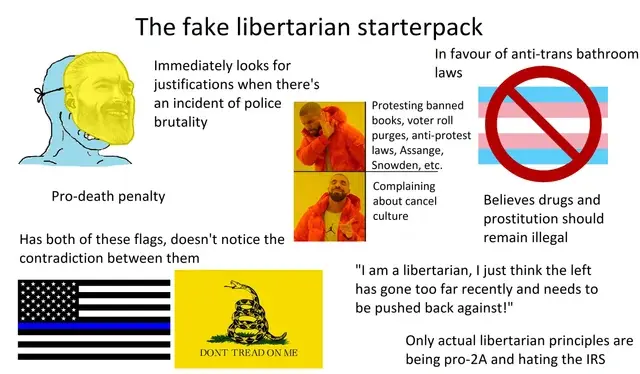this post was submitted on 30 Jul 2023
491 points (91.4% liked)
Political Memes
6043 readers
2608 users here now
Welcome to politcal memes!
These are our rules:
Be civil
Jokes are okay, but don’t intentionally harass or disturb any member of our community. Sexism, racism and bigotry are not allowed. Good faith argumentation only. No posts discouraging people to vote or shaming people for voting.
No misinformation
Don’t post any intentional misinformation. When asked by mods, provide sources for any claims you make.
Posts should be memes
Random pictures do not qualify as memes. Relevance to politics is required.
No bots, spam or self-promotion
Follow instance rules, ask for your bot to be allowed on this community.
founded 2 years ago
MODERATORS
you are viewing a single comment's thread
view the rest of the comments
view the rest of the comments

I would argue that it depends on context. Take the following two examples:
In the first example, a fire on one person's property can quickly threaten the property of many others around it. This danger could be argued to be so great that, if in a system where each individual must pay for fire services, and one individual does not, this can be seen as a threat to the livelihood of others -- a form of "aggression", if you will. It would be in everyone's best interest to have a municipal, or community fire department that the public pays for.
In the second example, no dwelling, or proprety is realistically a threat to any other. The only danger is to one's own property. As a result, it could be argued that, in such a situation, the individual could not be expected to pay for the fire service. If they wish to have its benefits, they could choose to pay, say, a subscription fee.